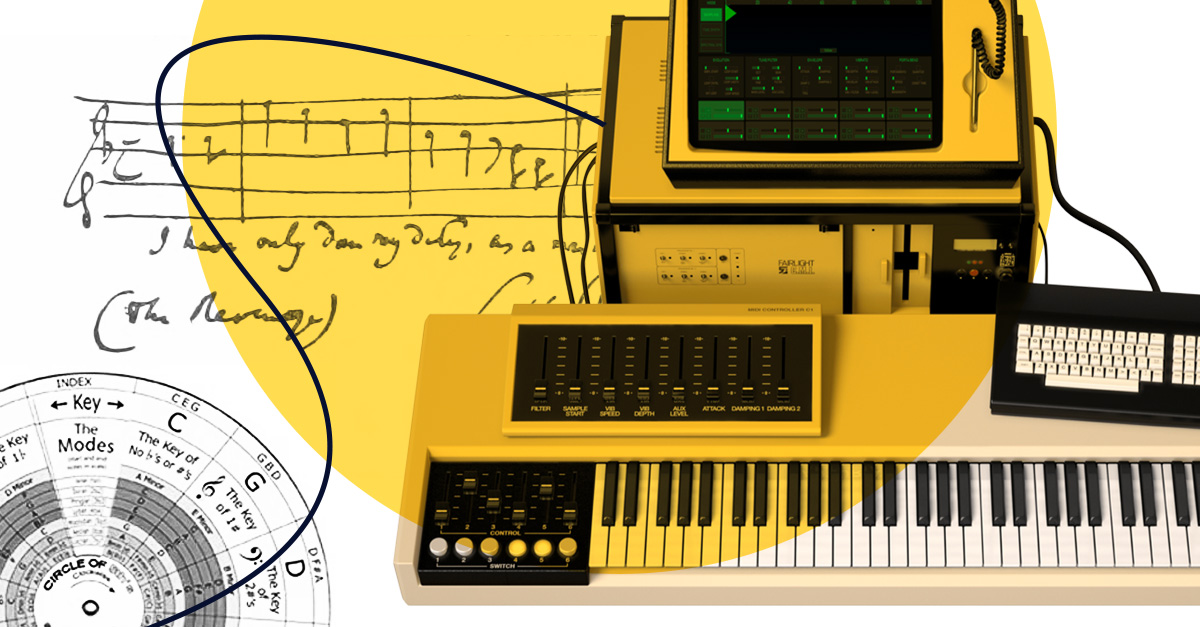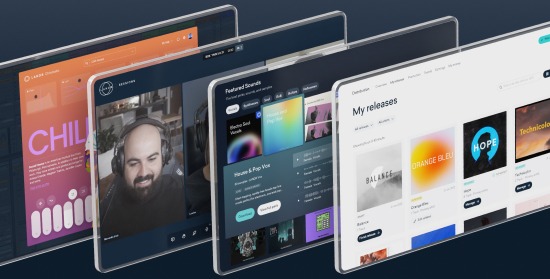6 Reasons You Should Learn a New Instrument

When it comes to starting new music, most of us reach for the instrument we’re most familiar with first.
But only interacting with one instrument can leave you stuck in a creative rut…
One of the best ways to break out is to pick up a totally new instrument.
Whether your primary instrument has keys, strings, pads or sticks, trying something different has a lot to offer.
Here are the top 6 reasons you should learn a new instrument.
1. You’ll get a theory workout
Do you really remember the key signature of Ab Major?
When your musical muscle memory goes out the window with a new instrument, you’ll be stuck with just your brain to guide you.
Relying on your music theory knowledge to orient yourself on a new instrument is like a workout for your skills.
Do you really remember the key signature of Ab Major?
As you fumble around your new instrument you’ll have to be deliberate about every single action. That means knowing what you mean to play before you play it.
The theory center of your brain will be working overtime and that extra stress will help you solidify your key concepts.
2. You’ll find new approaches to melody
Trying to come up with new melodies is hard.
Melodic habits are easy to develop and hard to break—especially if you’ve practiced them hundreds of times on your primary instrument.
Melodic habits are easy to develop and hard to break—especially if you’ve practiced them hundreds of times on your primary instrument.
On a new instrument you won’t have any habits to fall back into. Working on melodies this way can take you down unexpected paths.
Maybe you’re forced to play slower lines and longer phrases. Or maybe you can finally play multiple parts at the same time.
Whatever the result, you certainly won’t be able to stick to the familiar.
3. You’ll be encouraged to learn by experiment
Do you remember the sense of possibility you felt when you first started learning your instrument? Maybe not anymore after a long time working with it…
But when you start playing a different one that feeling comes back fast. There’s only one way to find your way around a new instrument—experimenting!
Experiment to find out what that button does, or what happens when you turn it up really loud. Experimentation is one of the most fun ways to learn anything, but it’s especially fun in music.

Getting your sense of musical adventure back is a fantastic reason to pick up a new instrument.
Getting your sense of musical adventure back is a fantastic reason to pick up a new instrument.
4. You get to think like a beginner again
Plenty of artists credit their lack of formal training as a source of creativity.
Pure musical intuition is the essence of punk, and it’s easy to access when you don’t feel the pressure of trying to improve on your main instrument.

So use that anything-goes approach to distill your ideas down to their most basic form. You’ll have to if you’re working with a totally new instrument!
Sometimes the simplest solution is by far the best. Starting out on a new instrument keeps you focused on that simplicity.
Pure musical intuition is the essence of punk.
Hot tip: Record everything during your beginner phase. There’s no such thing as mistakes when you’re just starting out
5. You’ll gain a new appreciation for arrangement
We all have a soft spot for the role our own instrument plays in an arrangement. But playing a different one forces you to focus on a whole different part of the song.
Going from a melodic instrument to a rhythm section role (or vice-versa) is a massive paradigm shift.
Even changing from a polyphonic instrument like guitar or piano to a monophonic one like trumpet or monosynth can have a big effect.
You’ll have to focus on sonic elements you might have taken for granted before.

Trying out new roles can help your songwriting. Get comfortable playing the different parts of a song. It will expand your understanding of how to write for them.
Get comfortable playing the different parts of a song. It will expand your understanding of how to write for them.
6. It’ll make you better at your primary instrument
All the lessons you learn by practicing a different instrument will pay off when you go back to your main one. Think of it like cross-training for music.
If working on your new instrument forced you to brush up on theory, or got you thinking more about other parts of the arrangement, those lessons will stay with you.
Sometimes getting perspective this way is all it takes to break through barriers and level up your game.
Practicing is an important part of musical life no matter what your instrument is. But gaining perspective by shaking up your habits is important.
Practicing is an important part of musical life no matter what your instrument is.
Shock of the unfamiliar
Learning a new instrument is good for your musical health.
Whether it’s to escape well-worn patterns or experiment with a new perspective, picking up a new instrument is worth your time.
Make learning a new instrument part of your new approaches. There’s no time like now to try new things!
Gear guides, tips, tutorials, inspiration and more—delivered weekly.
Keep up with the LANDR Blog.
Latest posts
